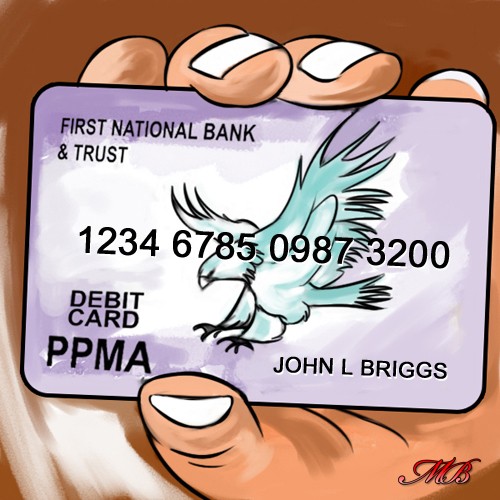Health Insurance (individual policies): First US State to separate health insurance from pre-paid
medical plans. [True health insurance is like life insurance. With life insurance, you (the pessimist) bet you’ll die before the policy expires and the insurance company (the optimist) bets you won’t. With true health insurance, you (the pessimist) bet you’ll need some major surgery in the future and the insurance company (the optimist) bets you won’t. Pre-paid medical plans are simply people paying in advance for regular, routine medical care and for major surgeries they are likely to need in the future (“pre-existing conditions”).] The US state allows its residents to set up tax-exempt, interest-earning savings accounts with banks and credit unions in which the residents can save money in a pre-paid medical account (PPMA) but only if a set percentage is automatically deducted from their paychecks and only if those paychecks are “direct deposit” paychecks from their employers to that bank or credit union. Employers and small business owners are allowed to set-up and fund their own tax-exempt PPMAs for themselves and their families. The banks and credit unions provide special PPMA debit cards that residents can use only at medical clinics, dentistry offices, hospitals, and other state-approved medical centers at which the residents can use the PPMA debit card to pay their medical bills.
Residents can transfer their PPMA from one bank or credit union to another without penalty. Residents cannot remove any money from their PPMAs under any circumstances EXCEPT to pay medical bills or to transfer money from their PPMA to a spouse’s,
domestic partner’s, or blood/adopted relation’s PPMA. [Expect expectant mothers to have their PPMAs nicely funded by their extended families when they announce they’re pregnant. Likewise, when the child is born, expect the baby’s PPMA to be instantly well funded.] States can prohibit people from transferring money from their PPMA below a certain amount (say $10,000) to prevent the person from having too little in their account to cover their own medical expenses. When a resident dies, the money left in his or her PPMA can be transferred to anyone else’s PPMA as stipulated in the resident’s will and the amount cannot be taxed. If a resident doesn’t specify how his or her PPMA money is to be distributed in his or her will, the state will distribute it among what it considers to be the resident’s rightful heirs according to state-stipulated rules and will charge a cost-only processing fee for making such distributions.
The US state only allows insurance companies to offer policies called “health insurance” if they cover only catastrophic medical emergencies, such as heart attacks, cancer treatments, amputations, and other “non-pre-existing condition” major surgeries. The US state also allows banks and credit unions to offer free “health insurance” policies from an insurance company if the resident has at least a certain minimum amount built up in his or her PPMA. These free health insurance policies from banks and credit unions can increase what they cover with the higher amounts built up in a resident’s PPMA.
Employers are prohibited from offering “health insurance” or PPMAs to their own employees (not even banks and insurance companies can do so) but can match contributions to PPMAs of their employees if they so wish. [This challenge unlinks employment from both health insurance and pre-paid medical plans as well as allows market forces to influence the medical industry by allowing people using PPMA debit cards to pay for their routine medical care. By way of the PPMA debit cards, people will start to shop around for their medical care, which should help drive down medical costs as the competition of the marketplace will finally be able to influence the medical industry.]
Future Challenges: 1) First major US state (population of 9 million or more) to do the above.
2) First US Senator or US House Representative to successfully introduce a bill to Congress that prohibits the federal government from taxing PPMAs. The bill also prohibits states from prohibiting or taxing any PPMAs transferred into or out of their state.
3) First non-US country to do the above for its citizens.
4) First TV documentary to explore the idea behind the PPMA cards as outlined in the original challenge. [Presently, Whole Foods uses a similar health insurance program for their employees.]

